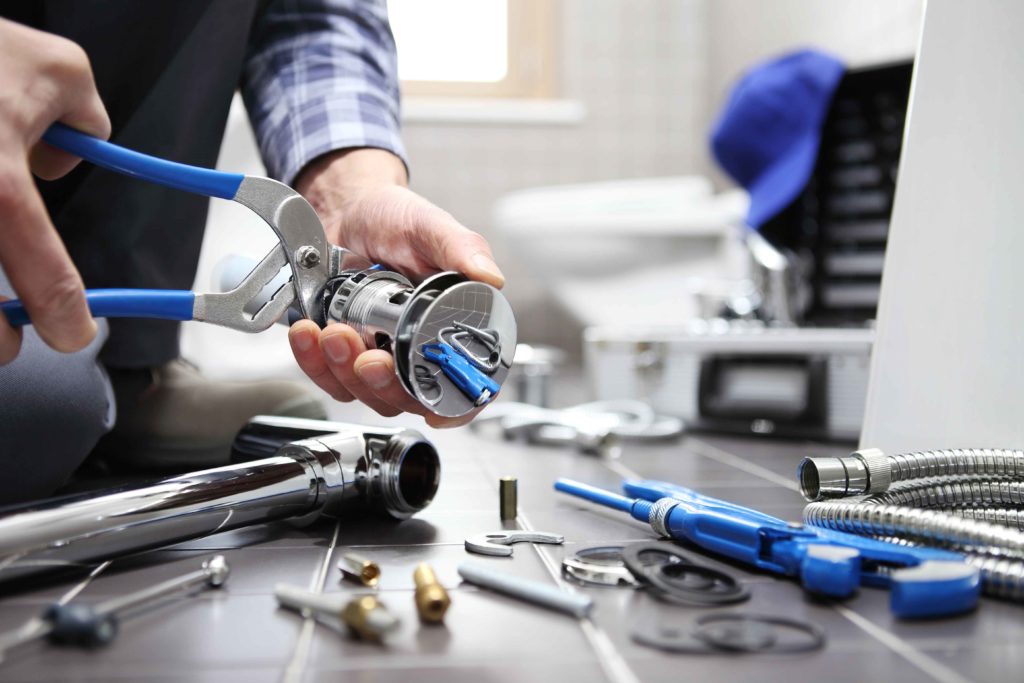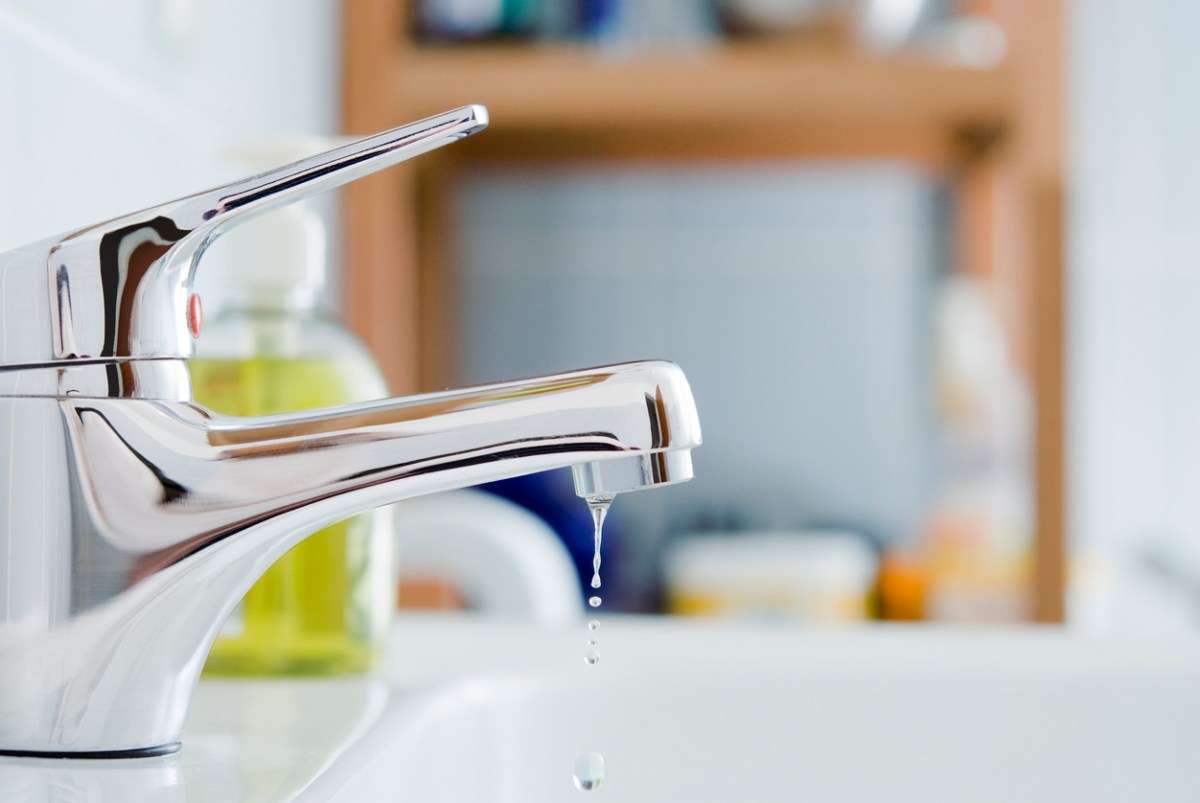Uncovering the Importance of Repairing a Dripping Faucet
Uncovering the Importance of Repairing a Dripping Faucet
Blog Article
What are your opinions concerning Water Dripping from Faucet: Why and How to Fix?

Trickling taps may feel like a small inconvenience, but their impact goes beyond just the inconvenience of the noise. From wasting water to incurring unnecessary financial costs and wellness risks, disregarding a trickling faucet can cause various effects. In this post, we'll explore why it's important to address this usual household concern without delay and efficiently.
Wastage of Water
Ecological Impact
Trickling faucets contribute substantially to water wastefulness. According to the Epa (EPA), a solitary tap trickling at one drip per secondly can lose greater than 3,000 gallons of water annually. This not only strains water resources but also influences ecosystems and wild animals based on them.
Step-by-Step Guide to Taking Care Of a Dripping Faucet
Devices Needed
Before attempting to take care of a leaking tap, gather the necessary devices, including a flexible wrench, screwdrivers, replacement parts (such as washing machines or cartridges), and plumber's tape.
Common Tap Issues and Their Solutions
Identify the sort of faucet and the details problem creating the drip. Common troubles include damaged washing machines, corroded valve seats, or damaged O-rings. Refer to supplier guidelines or on-line tutorials for step-by-step assistance on repair work.
Financial Prices
Raised Water Costs
Beyond the environmental effect, trickling faucets can pump up water costs considerably. The gathered waste over time converts right into greater utility costs, which might have been prevented with timely fixings.
Possible Property Damages
In addition, extended leaking can cause damage to fixtures and surface areas bordering the tap. Water buildup can create staining, deterioration, and even structural issues if left unattended, leading to additional fixing expenses.
Wellness Worries
Mold And Mildew and Mildew Development
The constant visibility of moisture from a leaking tap produces an excellent environment for mold and mildew and mold development. These fungi not only jeopardize interior air top quality yet also posture health risks, specifically for people with breathing conditions or allergic reactions.
Waterborne Illness
Stationary water in dripping taps can become a breeding ground for bacteria and other microorganisms, raising the risk of waterborne conditions. Impurities such as Legionella bacteria prosper in stationary water, possibly resulting in significant diseases when ingested or breathed in.
Do it yourself vs. Expert Repair service
Pros and Cons of DIY Fixing
While some might try to take care of a dripping tap themselves, do it yourself repair work feature their very own set of challenges. Without proper expertise and tools, DIY efforts can exacerbate the issue or lead to insufficient repair services, lengthening the trouble.
Advantages of Employing a Specialist Plumber
Working with a specialist plumber makes sure that the underlying reason for the trickling faucet is dealt with successfully. Plumbings have the proficiency and devices to identify and fix tap concerns successfully, conserving time and minimizing the risk of more damages.
Environmental Responsibility
Individual Payment to Preservation
Taking duty for dealing with trickling taps lines up with wider efforts toward water preservation and ecological sustainability. Every person's actions collectively make a substantial impact on maintaining priceless resources.
Sustainable Living Practices
By focusing on timely repair work and taking on water-saving routines, individuals add to sustainable living techniques that benefit both present and future generations.
Safety nets
Regular Upkeep Tips
To avoid trickling faucets, carry out regular maintenance such as cleansing aerators, examining for leakages, and replacing damaged parts immediately. Additionally, think about installing water-saving gadgets or updating to much more reliable fixtures.
Significance of Prompt Repair Works
Attending to leaking taps as soon as they're noticed stops additional water wastage and prospective damages, inevitably saving both water and money over time.
Effect On Home Worth
Perception of Well-Maintained Home
Maintaining a building in good condition, including attending to upkeep concerns like trickling taps, enhances its regarded value and value amongst possible purchasers or occupants.
Influence on Resale Worth
Characteristics with properly maintained plumbing fixtures, including taps, command higher resale values in the property market. Attending to dripping taps can contribute to a favorable impact throughout home examinations and negotiations.
Conclusion
Dealing with a leaking tap goes beyond simple benefit; it's a necessary action towards saving water, minimizing monetary expenses, and securing health and wellness and residential property. Whether with DIY repair work or professional aid, doing something about it to take care of leaking taps is a little yet impactful way to advertise accountable stewardship of resources and add to a healthier, extra lasting future.
Why Are My Faucets Dripping (And Can I Fix it Myself)?
Causes of a Dripping or Leaking Faucet
Whether you’re hearing drops of water falling and hitting a sink, or noticing water ooze out from the base of the spout, you shouldn’t ignore a dripping or leaking faucet. And, the good news is, sometimes you can fix the problem yourself.
In this article, we’ll review a few common causes of dripping and leaky. We’ll also walk you through some basic ways to find the problem and handle it without calling anyone — and let you know when to call in a pro.
But, no matter what the cause, or whether you can handle it on your own, the sooner you address it, the better.
Each drip may be a tiny amount of water. But, they all add up quickly. According to the U.S. Geological Survey, one faucet losing one drop every 20 seconds — five a minute — wastes around a liter of water every day, and 173 gallons a year.
Add in more than one in your house, and it’s a lot of water to waste. So, we’ll help you get to the bottom of things quickly.
Four Reasons Your Faucet May Be Dripping
Aerator is Damaged or Unseated Valve Seat is Corroded O Ring is Loose or Worn Out Part of the Assembly is Loose Aerator is Damaged or Unseated
If you unscrew the end of your faucet, you’ll find the aerator. It’s the little stem piece with a screen on it that shuts off the water circulation.
If it’s damaged, or if it’s not sitting right, it will allow water to pass through.
Valve Seat is Corroded
Next is the valve seat, which is connected to the washer. If the washer wasn’t in place correctly, then it could have ground against the seat. Over time, this damages the valve seat.
The problem could also be corrosion: Over time, the part has worn out, and it’s now allowing water to pass through.
O Ring is Loose or Worn Out
Since the o ring is only a small rubber gasket, it’s a common reason why the faucet is dripping. You’ll find it at the base of the faucet, and it’s there to keep water from coming out where it’s not supposed to.
However, it’s common for the o ring to wear out over time. When it does, you’ll notice a drip.
Part of the Assembly is Loose
So far, we’ve looked at a few small, specific parts. But, the problem could be anywhere in the assembly if something’s out of place.
Even if a part isn’t damaged, over time, it may have become loose or dislodged. It could be the parts we mentioned, or the aerator at the tip of the faucet, the stem itself,
Can I Fix a Leaky Faucet Myself?
Depending on the problem, and how handy you are, there’s a chance you can fix a leaky faucet without calling a professional. But, you do run the risk of making the problem worse.
If it’s a small drip, you can certainly try a few troubleshooting tactics. We’ll walk you through them in a moment.
But, no matter what, your first step should be shutting off the water coming into the faucet. You should find a shutoff valve under the sink on the pipes leading to it. Turn each one clockwise until they close tightly.
Next, make sure you have the right tools for whatever you’re attempting. It’s tempting to make do with what you have. But, you need the right ones for a reason: You’re often dealing with small parts that can break if you handle them carelessly.
If you’re feeling confident, here are some places to start.
Items Near the Tip of the Faucet
A few of the parts we mentioned — particularly the valve seat and washer — are located at the tip of the faucet where the water comes out. They’re easy to access, making it a good place to start.
Check the O Ring
To check the o ring, you’ll need to take off the spout at the base. It’s easiest on kitchen sinks with long spouts, versus the smaller, bulkier base on most bathroom sinks.
Either way, this can be tricky, so do it carefully and don’t force anything. If it’s not coming right off, you’re much better off calling in a pro than possibly breaking something.
For a kitchen sink, there’s usually a nut or coupling assembly at the base of the spout. These often slide off easily without using any tools.
Once you’ve disassembled those parts, gently but forcefully twist off the spout.
Then, you can see the o rings. There should be two of the rubber gaskets on the base. If they look worn or damaged, replace them, and see if that solves the problem.

Do you appreciate reading up on 4 Common Reasons for a Leaky Faucet? Give a review below. We will be glad to listen to your views about this write-up. We are looking forward to see you back again before long. Sharing is caring. Helping people is fun. We truly appreciate reading our article about How to Fix a Dripping or Leaky Faucet .
Report this page